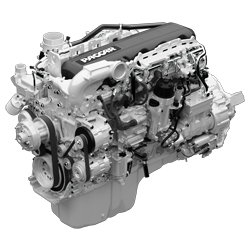P0CB7 Engine Code Repair
Meaning of P0CB7 engine trouble code is a kind of powertrain trouble code and when your car's 'P0CB7 Check Engine' light comes on, it's usually accompanied by a sinking feeling in the pit of your stomach. The light could mean a costly problem, like a bad catalytic converter, or it could be something minor, like a loose gas cap. But in many cases, it means at minimum that you'll be visiting the car dealer to locate the malfunction and get the light turned off.
P0CB7 Fault Symptoms :
- Check engine light comes on
- Engine stalling or misfiring
- Engine performance issues
- Car not starting
If one of these reasons for P0CB7 code is occuring now you should check P0CB7 repair processes.
Now don't ask yourself; What should you do with P0CB7 code ?
The solution is here :
P0CB7 Possible Solution:

Air Conditioning Pressure Sensor (ACP) Insufficient Pressure Change Each time the A/C clutch engages, the PCM is looking for a pressure change in the refrigerant. If the change in pressure is outside of the calibration the DTC will set. A/C system mechanical failure Open ACP or VREF circuit A/C sensor damaged A/C system electrical failure A/C clutch always engaged Verify A/C system function, including refrigerant charge.
P0CB7 Code Meaning :
P
OBD-II Diagnostic Powertrain (P) Trouble Code For Engine
0
Intake Valve Control Solenoid Circuit Low
c
b
7
Ignition Coil A Primary/Secondary Circuit Malfunction
The oxygen (02) sensors on your car measure the oxygen in the exhaust to determine how rich or lean the ratio of fuel and air are in the cylinders. Optimizing this mixture means better fuel economy and fewer exhaust emissions.
P0CB7 OBD-II Diagnostic Powertrain (P) Trouble Code DescriptionP0CB7 engine trouble code is about Ignition Coil A Primary/Secondary Circuit Malfunction.Main reason For P0CB7 CodeThe reason of P0CB7 OBD-II Engine Trouble Code is . |
P0CB7 code on vehicles with electronically controlled automatic transmissions, the 3-4 shift solenoid is responsible for actuating the hydraulic circuits to activate clutches or bands that change gears inside the automatic transmission.
